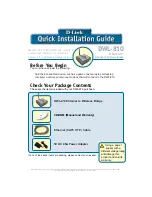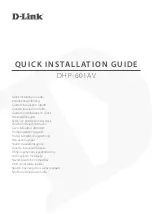
convert data traffic between USB and UART formats. This chip includes a complete
USB 2.0 full-speed function controller, bridge control logic, and a UART interface with
transmit/receive buffers and modem handshake signals.
For a terminal PC to connect to the console function on the MIC-5332 with a mini-USB
to USB cable, the CP2102 driver is available for download from Silicon Labs® website
(hyperlink below), and must be installed on the terminal PC. The PC can, for example,
run a Linux 2.4 or 2.6 kernel or Windows XP).
The miniUSB port is bus powered (i.e. powered by the terminal PC) and the COM port
will not be lost when power cycling the blade or ATCA system.
Prerequisite:
Commercial mini-USB to USB cable
CP2102 driver (needed to be installed on the terminal PC before using the console),
please download from
https://www.silabs.com/products/interface/usbtouart/Pages/default.aspx
Serial-over-LAN, SoL
User may also establish the console via SoL function, which is described in
section
4.6, Serial-over-LAN (SoL).
Prerequisite:
RJ45 Ethernet cable and IPMItool (see section 4.6.2.1 IPMItool)
Note
:
When SoL is used as the console terminal, please skip Section 3.3.2 and 3.3.3.
UART1 & UART2 (Zone3)
The MIC-5332 connects two UART interfaces to the Zone 3. To establish the console
link through the RTM, please refer to the RTM user manual.
3.3.2 Terminal Emulator
A terminal emulator application must be available on the terminal PC in order to
access the console screen. If your terminal PC runs on Microsoft Windows, a
common application that can act as a client for the SSH, Telnet, rlogin, and raw TCP
protocols called PuTTY can be installed and used. PuTTY was originally written for
Microsoft Windows; however, it has also been ported to various Unix-like operating
systems. It is available as open source software for download from the internet.
Summary of Contents for MIC-5332
Page 7: ...This page is left blank intentionally ...
Page 10: ...Chapter 1 Product Overview This chapter briefly describes the MIC 5332 ...
Page 15: ...Chapter 2 Board Features This chapter describes the MIC 5332 hardware features ...
Page 43: ...Figure 3 10 Jumper Locations JP1 JP5 JP6 ...
Page 44: ...Chapter 4 Hardware Management This chapter describes the IPMC firmware features ...
Page 105: ... root localhost ipmitool raw 0x2E 0x40 0x39 0x28 0x00 0x03 0x01 section ...
Page 108: ...Appendix A IPMI PICMG Command Subset Supported by IPMC ...
Page 120: ...33 48V_A 48V input feed A 34 48V_B 48V input feed B ...
















































